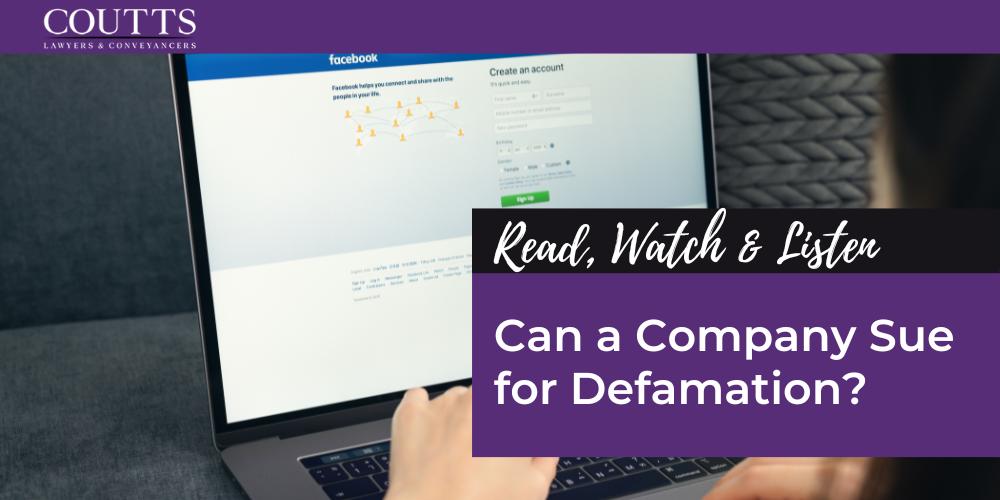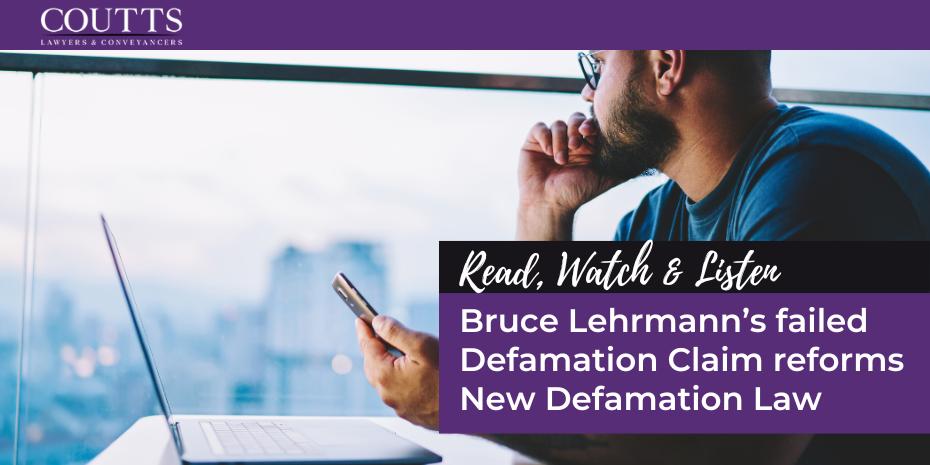KEY TAKE OUTS
- A Harris Park travel agency commenced defamation proceedings against a Sydney woman who was part of a mother’s Facebook group after publishing a post that was extremely critical of the travel agency’s services.
- The Court dismissed the travel agency’s claim and ordered that it pay the woman’s legal costs.
- Generally, a company does not have the capacity to sue for defamation unless it is a not-for-profit company or a company that employs fewer than 10 employees and is not related to another company.
A travel agency based in Harris Park has been ordered to pay a woman’s legal costs after commencing defamation proceedings against her for publishing negative comments about the company in a mother’s Facebook group.
The Facts
The woman had booked flights through the travel agency for herself and her child who was about 18 months old at the time. The woman had requested that the travel agency ensure that the airline provide her with a bassinet for her child and baby food. The woman said that she had received both verbal and written assurances from the travel agency that the airline would provide these facilities.
On the flight, the airline staff advised the woman that they had no record of any payment and therefore, the airline had no record of any requirement to provide the bassinet and baby food.
On 2 July 2018, the woman published a post on the Facebook group of a community group called ‘Desi Mums Connect (Sydney)’ that was extremely critical of the quality of the travel agency’s services.
The travel agency commenced proceedings against the woman for damages for defamation arising from the Facebook post.
The primary issue in the proceedings was whether the travel agency, as a corporation, had the capacity to sue the woman in defamation. Under the Defamation Act 2005 (NSW) (“the Act”), a company cannot sue for defamation, unless they are an “excluded corporation” which includes companies that employ fewer than 10 employees.
The travel agency argued that it employed only 5 or 6 employees. However, the Court found that argument was not persuasive due to a partnership the travel agency had with a call centre in India.
The Findings
As the travel agency could not prove it had fewer than 10 employees, the Judge held that the travel agency did not have the capacity to sue the woman in defamation and ordered that the travel agency pay the woman’s legal costs.
The Judge also noted that in the event that the travel agency had the capacity to sue for defamation, he would have awarded the travel agency damages in the sum of $10,000.00 for loss of reputation.
When can a company sue for defamation?
As shown in the above case, a company is only entitled to sue for defamation in certain circumstances. Section 9 of the Act provides:
(1) A corporation has no cause of action for defamation in relation to the publication of defamatory matter about the corporation unless it was an excluded corporation at the time of the publication.
Under the Act, an ‘excluded company’ is defined as a not-for-profit company or a company that employs fewer than 10 employees and is not related to another company.
If a company is not considered to be an ‘excluded company’ under the Act, they cannot sue for defamation. However, an individual associated with a company, such as an employee can sue for defamation where the publication refers to a company but reflects upon an employee within the company.
info@couttslegal.com.au
1300 268 887
This blog is merely general and non specific information on the subject matter and is not and should not be considered or relied on as legal advice. Coutts is not responsible for any cost, expense, loss or liability whatsoever in relation to this blog, including all or any reliance on this blog or use or application of this blog by you.



